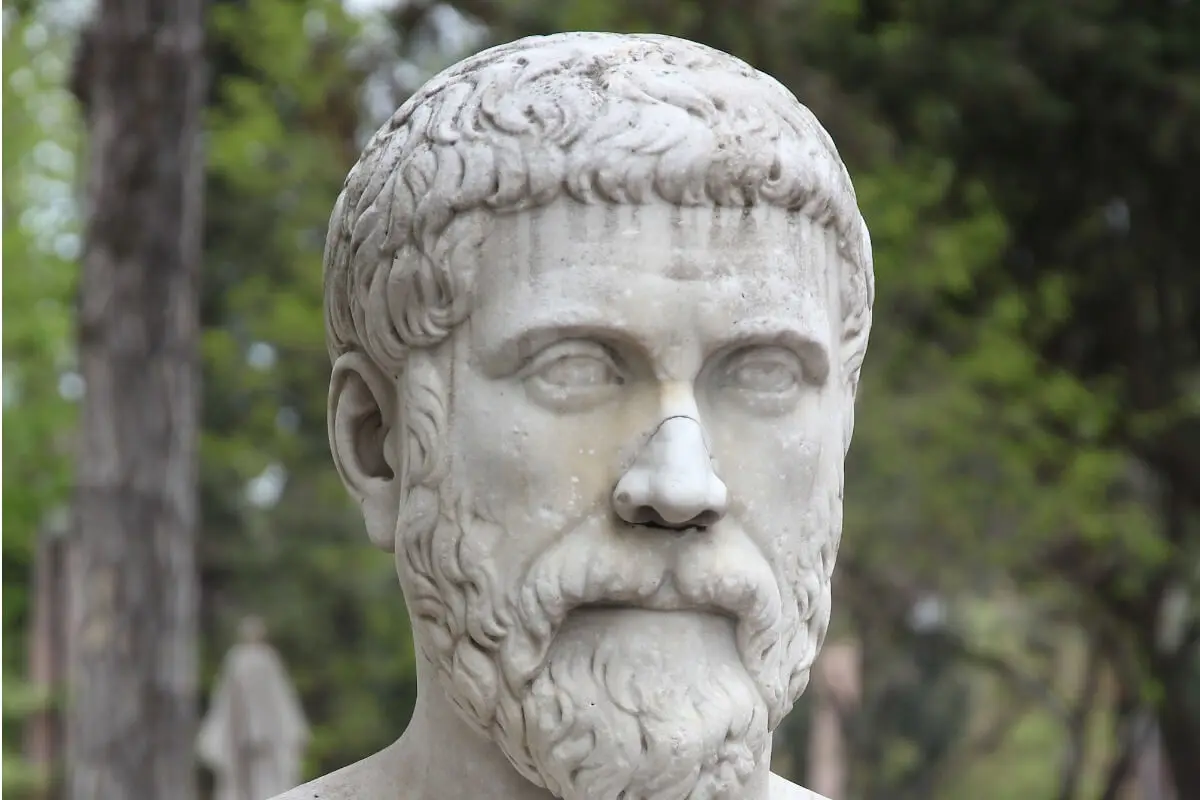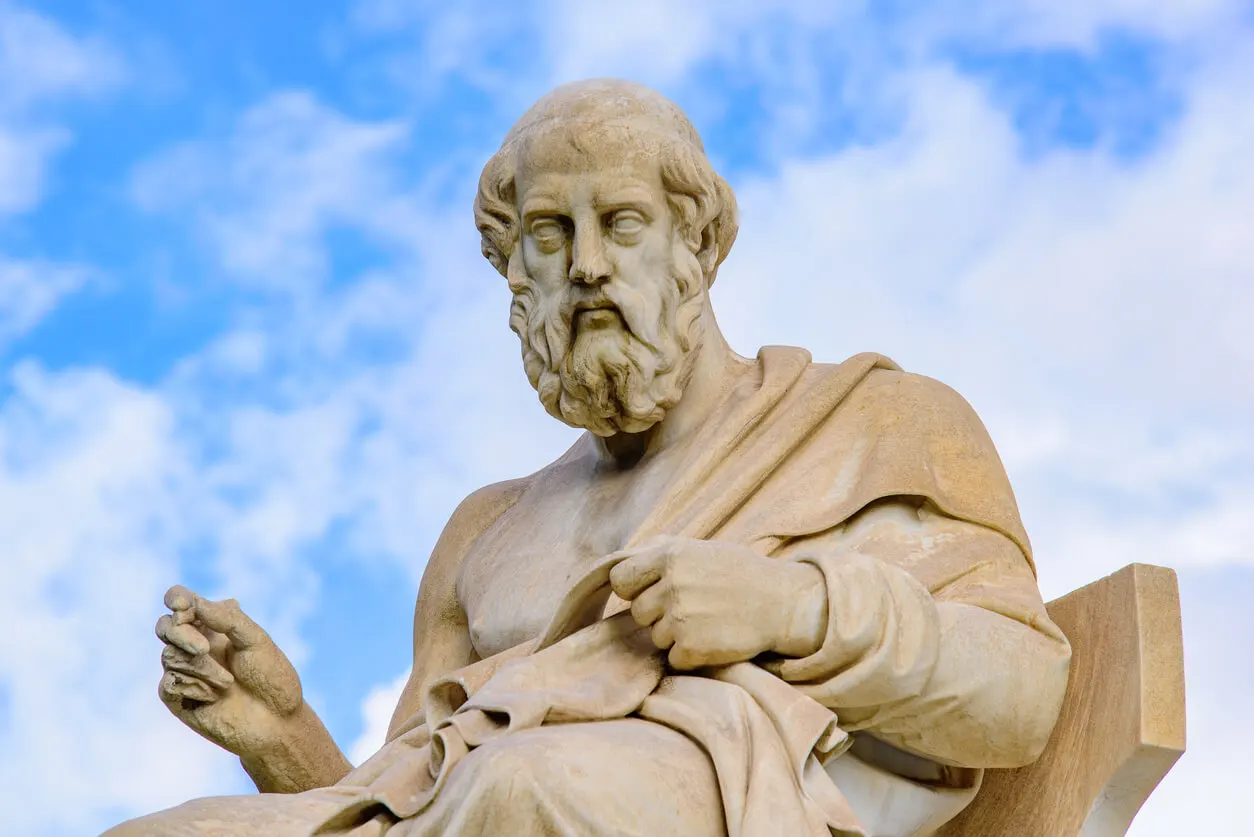The 6 Best-known Greek Philosophers and Their Contributions


Written and verified by the philosopher Maria Alejandra Morgado Cusati
Ancient Greece was characterized by the emergence of a plethora of thinkers who broke with the tradition of attributing magical and mythological explanations to reality. In this sense, the Greek philosophers of that time advocated for an interpretation of reality based on reasoning and evidence.
This way of approaching and interpreting reality had a great impact on the development of Western culture. It contributed to the progress of societies and the emergence of the sciences.
In fact, the scope of these reflections is such that many are still being studied and debated. The following is a list of the most influential philosophers of ancient Greece and their most relevant contributions.
1. Thales of Miletus (620 B.C. – 546 B.C.)
Thales of Miletus is considered the first philosopher of the West for having provided the first rational explanation for different phenomena of the world. He was born around 624 BC, in the city of Miletus (in Asia Minor). He was part of the new wave of thinkers who tried to determine how the cosmos was constructed.
Thales believed that a single element (in this case, water) was the essential principle from which the whole cosmos originated. He was also the first to affirm that the earth was circular and to divide the year into 365 days.
His rational reflections about the physical world were very well received by later Greek philosophers, on whom he had a great influence. Thanks to his novel contributions to the physical world, he is often considered the father of science.
We think you may be interested in reading this, too: The Philosophy of Nature and its Importance for the Modern World
2. Heraclitus of Ephesus (c. 540 BC – 480 BC)
Heraclitus of Ephesus is another of the most influential Greek philosophers was Heraclitus, born around 540 BC, in Ephesus (Ionia, Asia Minor). Like Thales, this thinker also reflected on the origin of the cosmos, affirming that fire was the main element from which the whole universe and life originated.
Thus, he believed that the cosmos was a transmutation of fire and insisted that matter is always in constant change. His ideas had a great influence on later thinkers, and he’s now considered the father of dialectics.
3. Pythagoras (570 BC – 495 BC)
Pythagoras was a Greek philosopher and mathematician. He’s believed to have been born on the island of Samos, around 570 B.C. This great thinker argued that mathematics offered a harmonious and rational explanation of the workings of the cosmos.
He asserted that the entire universe was governed by the principles of mathematics and believed mathematics to be the fundamental model for philosophy. His studies in geometry led to astonishing discoveries that would later influence mathematics and architecture for thousands of years.
He was also one of the first Greek philosophers to use deductive reasoning to reach his conclusions. This was a significant change in the way thinkers presented their theories.

4. Socrates (469 BC – 399 BC)
Socrates was a Greek philosopher who embarked on a new philosophical perspective. That is, he moved away from speculations and reflections on the cosmos. Instead, he was concerned with establishing an ethical system based on reasoning.
In this sense, this great thinker advocated that knowledge was the supreme good and that the pursuit of knowledge was essential for living a good and virtuous life. His method also differed from that of earlier philosophers.
Instead of making individual reflections on the subject at hand, he would dialogue with people about their beliefs and try to find any contradictions or flaws in them. By using this method, he hoped to examine everyday concepts that others took for granted and gain valuable information.
However, this inductive examination was not always well received and was the cause of his own death. In fact, he was accused of corrupting the youth of Athens with his method.
During his trial, Socrates accepted the charge of guilt rather than embracing ignorance. He declared that “the unexamined life is not worth living.” Thus, he drank hemlock poison and ended his own life.
Socrates left no written works. His thoughts and ideas endured through the dialogues of his disciple Plato.
5. Plato (427 BC – 347 BC)
Along with Socrates, Plato was a key figure in the foundation of Western thought. He was a student of Socrates and was visibly influenced by the philosophical approach of his teacher.
While Socrates focused on a philosophy based on human reasoning, Plato combined the two main approaches of pre-Socratic metaphysics and natural theology with Socratic ethical theology. His theory of ideas is one of the most studied by contemporary philosophers.
In it, Plato defends the existence of two worlds: the world of ideas and the world of the senses.
The world of ideas is true, incorruptible, and immutable. There dwell the universal and necessary ideas, which are the essences of all that exists.
For its part, the world of the senses is made up of everything that we can experience through the senses. It’s characterized by multiplicity, being pure appearance, and constantly changing. Therefore, it’s often false and deceptive.
This interpretation of reality brings implicitly his dualistic conception of man composed of body and soul. In this case, the soul is the essence of the human being, which comes from the world of ideas, while the body is found in the world of the senses.
Plato also held an interesting position on ethics and politics. Likewise, his ideas had a great influence on the development of Christianity.

6. Aristotle (384 BC-322 BC)
Although Aristotle was a disciple of Plato, his ideas differed significantly from those of his master. As a result of this discrepancy, he founded his own school: the Lyceum.
Like his teacher, Aristotle wanted to find out how we obtain knowledge. However, he rejected Plato’s theory of ideas in favor of a more empirical approach. In this sense, Aristotle believed that we acquire knowledge from the evidence we observe in the world around us.
Among the great contributions he made to Western thought, we can highlight the following:
- The creation of formal logic.
- The first classification of living beings.
- The importance of observation for the acquisition of scientific knowledge.
- The first demonstrations of the spherical shape of the earth.
- The creation of a structured ethical system.
His contributions remained valid for centuries. Some of them are still valid today, to such an extent that he is considered the father of biology and logic.
Like this article? You may also like to read: The Similarities and Differences between Philosophy and Psychology
Philosophers who endure to this day
The number of the most influential Greek philosophers is not exhausted with the list we presented in this article. In reality, it’s missing many key figures who helped shape Western thought, such as Epicurus, Zeno, and Diogenes, among others.
However, with this small sample, we can notice how the reflections of thousands of years ago still continue to permeate our thinking and culture. Did you know these 6 philosophers?
All cited sources were thoroughly reviewed by our team to ensure their quality, reliability, currency, and validity. The bibliography of this article was considered reliable and of academic or scientific accuracy.
- Curd P. Presocratic Philosophy [Internet]. California: Stanford Encyclopedia of Philosophy; 2020 [consultado 24 ene 2022]. Disponible en: https://plato.stanford.edu/entries/presocratics/
- Graham D. Heraclitus [Internet]. California: Stanford Encyclopedia of Philosophy; 2019 [consultado 24 ene 2022]. Disponible en: https://plato.stanford.edu/entries/heraclitus/
- Kraut R. Plato [Internet]. California: Stanford Encyclopedia of Philosophy; 2017 [consultado 24 ene 2022]. Disponible en: https://plato.stanford.edu/entries/plato/
- Nails D. Socrates [Internet]. California: Stanford Encyclopedia of Philosophy; 2018 [consultado 24 ene 2022]. Disponible en: https://plato.stanford.edu/entries/socrates/
- Shields C. Aristotle [Internet]. California: Stanford Encyclopedia of Philosophy; 2020 [consultado 24 ene 2022]. Disponible en: https://plato.stanford.edu/entries/aristotle/
This text is provided for informational purposes only and does not replace consultation with a professional. If in doubt, consult your specialist.








